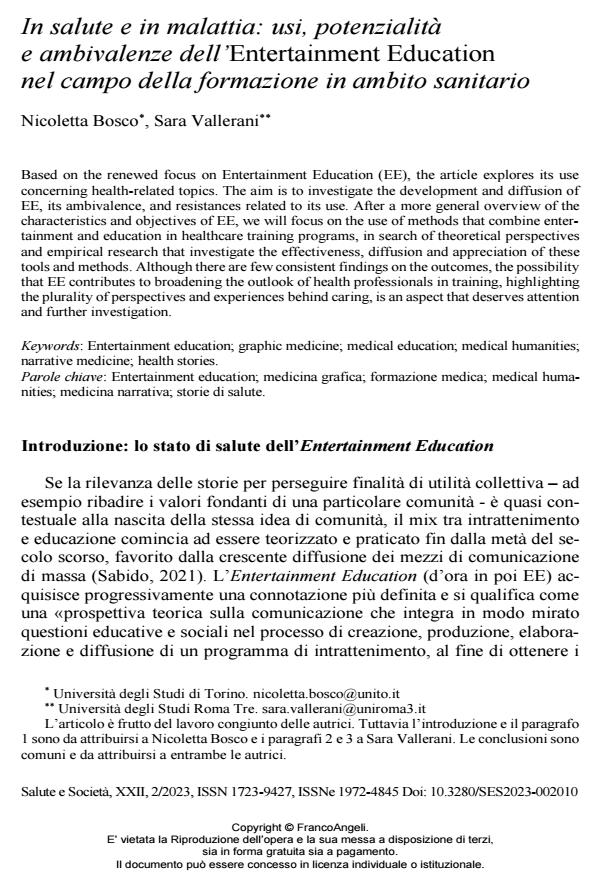In salute e in malattia: usi, potenzialità e ambivalenze dell’Entertainment Education nel campo della formazione in ambito sanitario
Titolo Rivista SALUTE E SOCIETÀ
Autori/Curatori Nicoletta Bosco, Sara Vallerani
Anno di pubblicazione 2023 Fascicolo 2023/2
Lingua Italiano Numero pagine 12 P. 106-117 Dimensione file 467 KB
DOI 10.3280/SES2023-002010
Il DOI è il codice a barre della proprietà intellettuale: per saperne di più
clicca qui
Qui sotto puoi vedere in anteprima la prima pagina di questo articolo.
Se questo articolo ti interessa, lo puoi acquistare (e scaricare in formato pdf) seguendo le facili indicazioni per acquistare il download credit. Acquista Download Credits per scaricare questo Articolo in formato PDF

FrancoAngeli è membro della Publishers International Linking Association, Inc (PILA), associazione indipendente e non profit per facilitare (attraverso i servizi tecnologici implementati da CrossRef.org) l’accesso degli studiosi ai contenuti digitali nelle pubblicazioni professionali e scientifiche.
Based on the renewed focus on Entertainment Education (EE), the article explores its use con-cerning health-related topics. The aim is to investigate the development and diffusion of EE, its ambivalence, and resistances related to its use. After a more general overview of the character-istics and objectives of EE, we will focus on the use of methods that combine entertainment and education in healthcare training programs, in search of theoretical perspectives and empiri-cal research that investigate the effectiveness, diffusion and appreciation of these tools and methods. Although there are few consistent findings on the outcomes, the possibility that EE contributes to broadening the outlook of health professionals in training, highlighting the plu-rality of perspectives and experiences behind caring, is an aspect that deserves attention and further investigation.
Parole chiave:Entertainment education; medicina grafica; formazione medica; medical humani-ties; medicina narrativa; storie di salute.
Nicoletta Bosco, Sara Vallerani, In salute e in malattia: usi, potenzialità e ambivalenze dell’Entertainment Education nel campo della formazione in ambito sanitario in "SALUTE E SOCIETÀ" 2/2023, pp 106-117, DOI: 10.3280/SES2023-002010